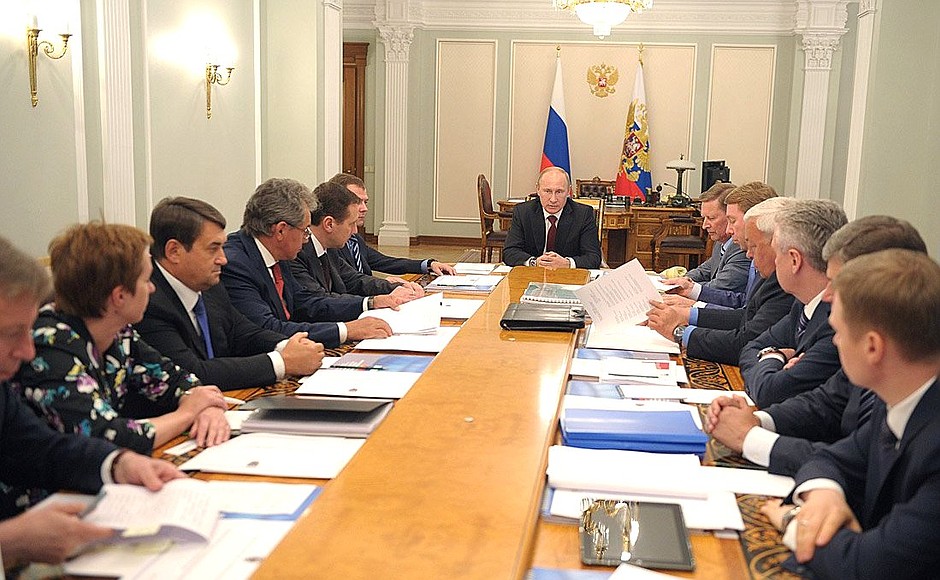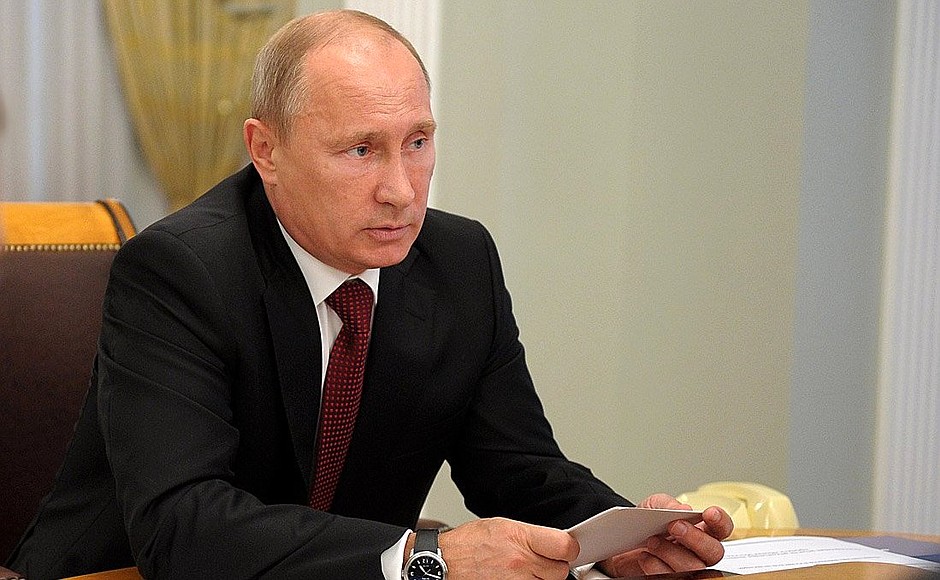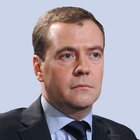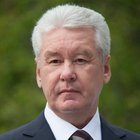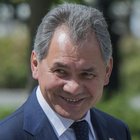The meeting was devoted to finalising the details of the decisions adopted earlier on the expansion of Moscow. Particular attention was paid to the organisational and economic issues, and efficient use of funds. In addition, the capital’s transport problems were discussed.
The meeting was attended by Prime Minister Dmitry Medvedev, Moscow Mayor Sergei Sobyanin, Moscow Region Governor Sergei Shoigu, representatives of ministries and the Presidential Executive Office.
* * *
President of Russia Vladimir Putin: Good afternoon, colleagues,
We have gathered today to analyse the situation with expanding the borders of the Russian capital, the expansion of Moscow.
Let me remind you that as of July 1, Moscow’s area increased by 2.5 times. I want to emphasise that there was urgent need for this step; it was not embarked on because it was someone’s pet project or a PR campaign. The city is suffocating, and all of us are aware of that. Moscow is facing growing challenges, and they are not limited just to transportation issues – there are many more. Some of them are urgent social problems because it is becoming impossible to effectively address the issues facing a metropolis of such magnitude as Moscow using modern approaches.
In this regard, I want to thank those whose efforts led to a speedy adoption of amendments to existing legislation. It was imperative to harmonise federal, municipal and regional laws. This applies to taxation, pricing, billing, and housing and land relations. This has been done but I am sure we still have work to do. I urge the Moscow and Moscow Region leadership to reflect together on ways to eliminate any possible problems in the future, and to make sure that everything goes smoothly and without creating any hurdles for the people.
”We must not allow the environment or recreation potential of the new areas to suffer in any way. We must adopt a very competent approach to urban planning and infrastructure development.“
There are several points I would like to draw your attention to.
First. The expansion of Moscow is a complex and multifaceted project. We must bear in mind that the new areas are well-established districts in their own right, with their own opportunities as well as problems. It is essential that we have a detailed vision, and not just a general view, of its harmonious and – I want to stress this – integrated development. For example, we must not allow the environment or recreation potential of the new areas to suffer in any way. We must adopt a very competent approach to urban planning and infrastructure development. Today I ask the leaders in charge of these projects to tell us about them in more detail.
The second very important aspect is that we must have a clear and detailed understanding of the costs involved in each of the projects being planned for the new areas. These projects go far beyond the relocation of administrative offices and the construction of new office buildings, which I will come back to later; there are many other plans and opportunities in these areas. However, we must have a clear idea of which offices will be relocated, what the timeframe is and the costs involved.
Let me remind you that we are facing major challenges in other areas. The preparations for the APEC Summit in Vladivostok and the event itself will entail major expenses this year. Although the main infrastructure facilities have been completed, the payments for them will be made this year. As you know, this is large-scale work, which includes the airport, roads, two major bridges, as well as the creation of a new higher education institution: the Far East Federal University. We will make payments for all of that this year.
”We cannot afford any inefficient expenditures. All the funding allocated for the development of Moscow’s new areas must be kept under the strictest supervision.“
Next, we have the Kazan Universiade, and President of Tatarstan Rustam Minnikhanov has already made a request for additional financial support for its preparation. Preparations for the 2014 Winter Olympics are going full steam in Sochi. There are other, equally expensive national projects.
I'm not even talking about the absolute need to implement the rearmament programme. This is a critical task, one of our most crucial objectives. That is not because someone has decided to spend a lot of money – not at all. The fact is – and I have already talked about this publicly and am not afraid to say it again — the fact is that the systems that are vital to our defence capabilities are worn out and we have to replace them one way or another. We can make small changes in the timescale, but they will not be significant, and it will not cut the spending. It is imperative for us to bear this in mind.
I hasten to stress in this regard that we must organise our efforts in such as way that the budgets of all levels are targeted at tackling these tasks.
There are also social issues involved due to the fact that we have set specific tasks during the election campaign and the public expects us to fulfil these promises. These obligations have to do with economic development, the social sphere, higher wages in the public sector, and so on. Therefore, we cannot afford any inefficient expenditures, especially on such a large scale. I should add that all the funding allocated for the development of Moscow’s new areas must be kept under the strictest supervision.
Next. As I said before, the main benchmark for the project is the comfort and quality of life for Muscovites. If people do not feel any advantage for themselves from expanding the city’s borders, from relocating administrative offices to the new districts, for example, then we can say that this project is absolutely pointless. It is justified only if people feel certain advantages and benefits as a result of this change. This applies to clearing up Moscow’s historical centre and to the development of new districts, by which I mean the need for new infrastructure such as roads, bridges and tunnels, as well as the social infrastructure, such as new health centres, kindergartens and so on.
”The main benchmark for the project is the comfort and quality of life for Muscovites.“
I draw your attention to the fact that it is essential to establish constructive cooperation between the capital and the region in areas such as zoning, transportation, siting of industrial areas, labour migration, the environment, and recycling of household and industrial waste. We must act with the utmost care in each specific case. I mean, and I am sure you understand, the people who live in these areas. We will be dealing with some very sensitive issues such as country homes, garden plots, and so on.
And finally, the fourth point. As we implement the project, we cannot perceive the decisions that were adopted earlier as set in stone. Naturally, we will proceed from the emerging situation in our economy and our financial capabilities. However, another important factor will be the readiness of the relevant departments and agencies to address particular issues. That is the reason we have met today: firstly, to emphasise that we are making progress on this project, and, secondly, to make sure that all departments involved in this process at all levels of government, including regional ones, have started concrete work. We will also need to decide on the deadlines.
I will add that today we need to discuss the planned relocation of federal agencies to the new areas, as I mentioned in the beginning. We expected the proposals to be formulated by July 9, 2012. I would ask you today to report on how this work is progressing, at least in general terms, and tell us about your proposals.
I would also like to ask Moscow Mayor Sergei Sobyanin to elaborate in his report on solutions to the transportation problems. At present, people using both public transport and personal vehicles in Moscow spend an average of 66 minutes per day on the road. Every fifth resident of the capital spends over three hours daily commuting. Almost half of the jobs are concentrated within the Third Ring Road, an area that is home to only 8% of the population. 92% of Muscovites live between the Third Ring and the Moscow Ring Road. Another 1.3 million commute to work from the Moscow region every day. I would like to hear concrete proposals on untangling these traffic problems, including the construction and upgrading of the road network, which is important and necessary, as well as a more balanced development of the entire urban area.
<…>
